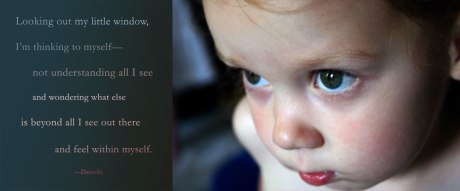Qualities of Photographic Methods Continued…
We become familiar with light’s properties and manners through our eyes, which act as optics. Optics are material instruments (such as mirrors and lenses) used to reflect, refract, and focus complexes of light so that they can be understood in particular ways.
Optics may be organic or inorganic, natural or man-made. Spiders have simple eyes, which are designed to detect various intensities of light and no more. Some nightlights have similar sensors that merely detect light intensity. The sensor operates a switch to turn the nightlight on whenever the room becomes dark. Such nightlights do not need the more sophisticated (and more expensive) optics of SLR (Single Lens Reflex) cameras, which in turn are simple compared to the optics of human eyes.
Complex eyes (such as you are using to read this text) are designed to detect motion, perceive form and space, and distinguish among wavelengths within a narrow range of the electromagnetic spectrum scientists call visible light. Artists call this portion color.
Human eyes have been created to perform all these optical feats well, but are, by design, not the best at any one of them. Nor is every human eye created equal. But in every case, whatever one’s eyes take in his or her brain receives and processes. It is the mind that deciphers perceptions, organizes and compares them, understands them cumulatively, and stores them as memories. Thus, the eyes and the mind each have a particular impact on perception of light.
In the same way, optics and photosensitive mediums impact photographic composition and photographic representations of light.
Optics mediate light before the light is recorded photographically (in most cases). Whenever this is the case, the peculiar logic of the mediating optic(s) pervades the record:
When a camera with a 55 mm lens records light, the logic of the optic is so similar to that of the lenses of human eyes, the result seems natural to us and we do not attend to the present optical logic. But when the optic of a photographic instrument is significantly different than our organic lenses, as in a fisheye lens, the result seems foreign, yet logical.
To be continued…
